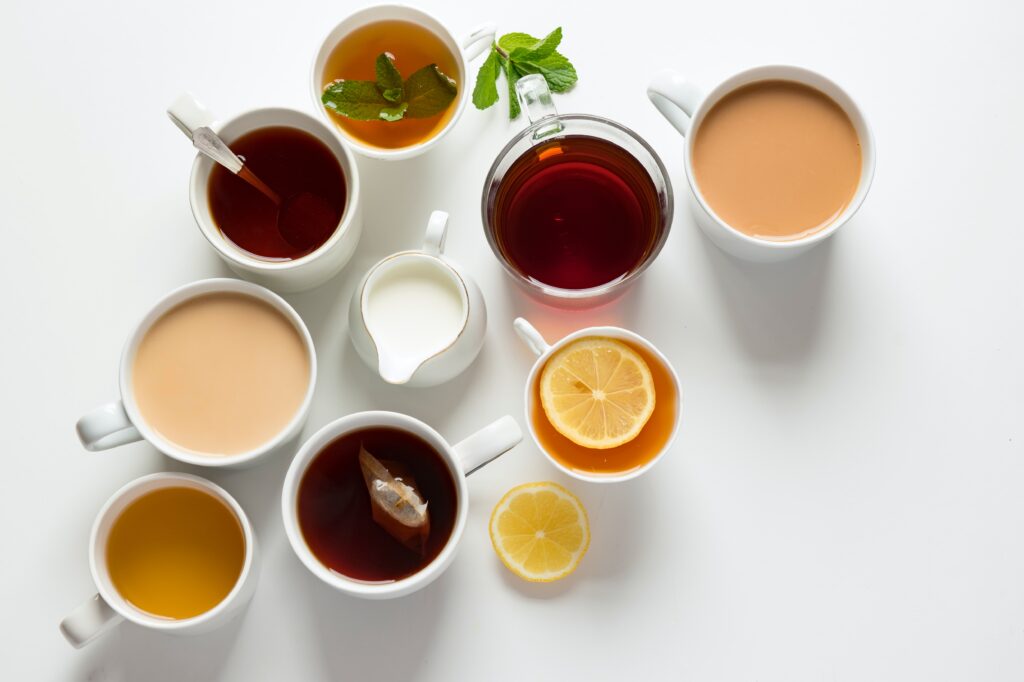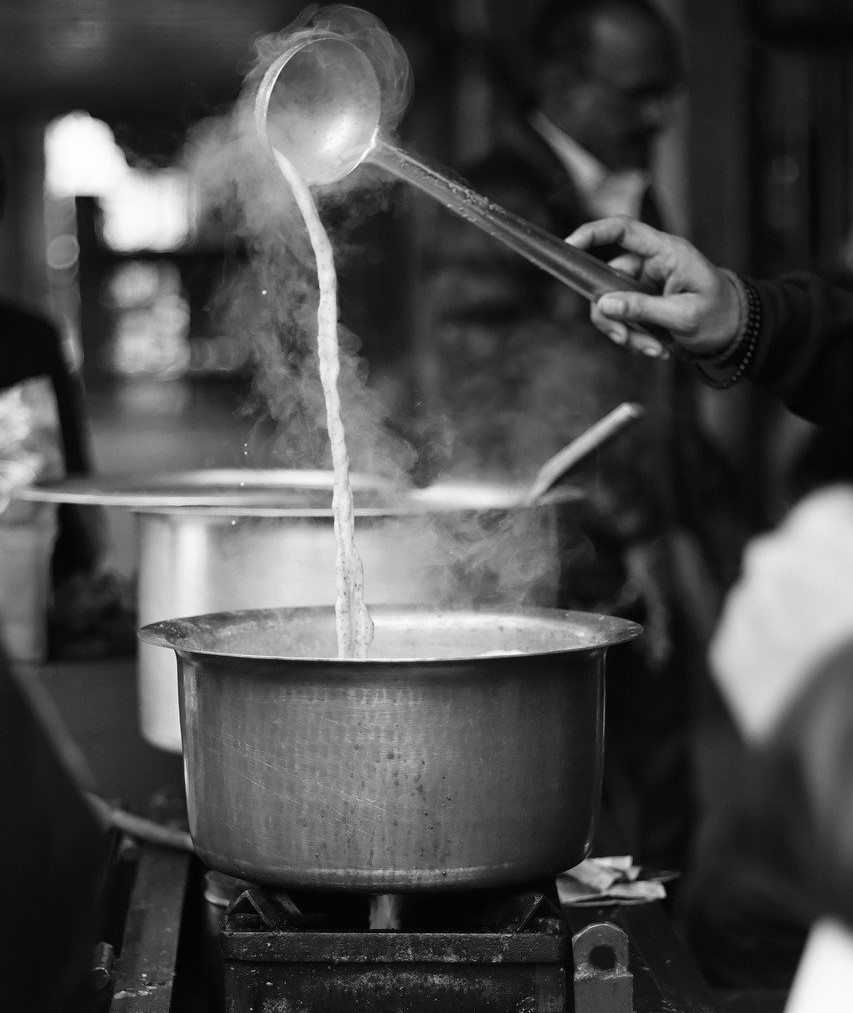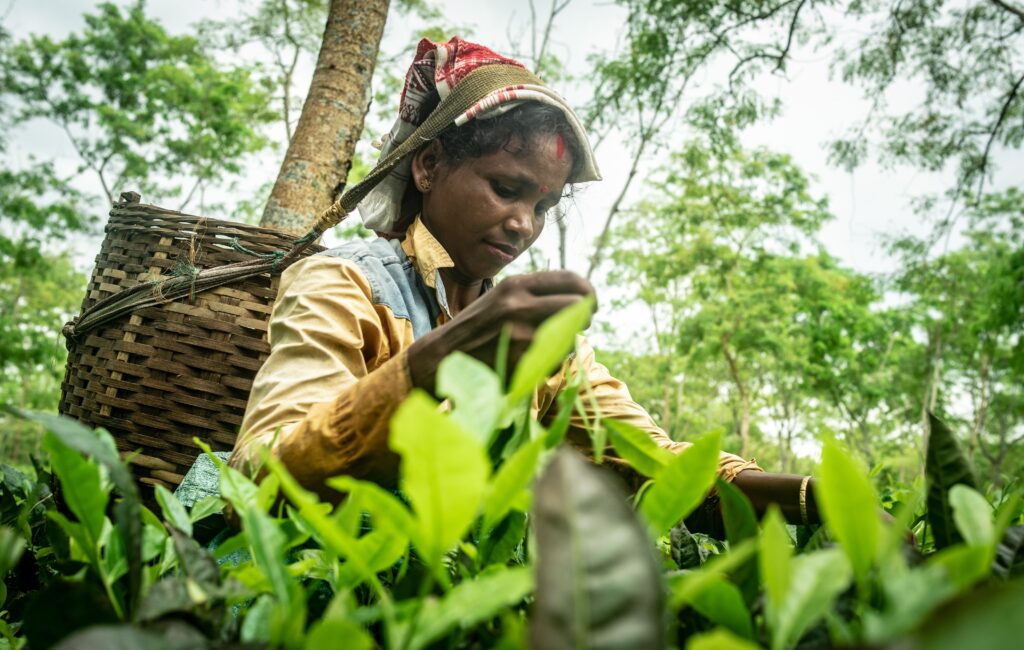Imagine sitting in a cosy little nook, surrounded by the soothing aroma of freshly brewed tea leaves. The steam rises from the cup in front of you, inviting you to take a sip. You take the first sip, and the warm, comforting liquid washes over your taste buds, leaving a sense of tranquillity in your mind. That’s the magic of tea, a beverage that has been a part of human history for centuries, with a rich cultural significance in many countries.
In India, tea is not just a beverage; it is an integral part of the country’s social and cultural fabric. From the bustling streets of Mumbai to the tranquil hills of Darjeeling, tea is everywhere in India. In this article, we will explore the history and importance of tea.

The Origins of Tea
As the British East India Company set foot in India, they brought along a legacy that would eventually become an integral part of Indian culture – tea. The tale goes that the British were craving their daily cuppa and were frantically searching for a suitable alternative to Chinese tea. That is when they discovered the perfect climate and soil conditions in the northeastern state of Assam, India. And soon, vast tea estates were established in the region, and India became a major tea producer.
Tea in Indian Culture
With time, tea became a part of India’s cultural fabric. It is a beverage, a symbol of hospitality, and an inseparable part of the Indian way of life. Tea is served on every occasion – from small gatherings to grand weddings, and even on trains and buses. Its popularity has also spread across the world, making India one of the largest producers and exporters of tea. Tea is also a social lubricant, bringing people together for conversations and gatherings. It is not uncommon for people to offer a cup of tea to guests as a sign of hospitality and respect.

Varieties of Tea in India
India is known for its diverse range of teas, each with its unique flavour and aroma. Some of the most popular varieties of tea in India include:
Assam tea: grown in the northeastern state of Assam, this tea is known for its robust and malty flavour.
Darjeeling tea: grown in the hills of Darjeeling in West Bengal, this tea is light and floral, with a delicate aroma.
Nilgiri tea: grown in the Nilgiri hills of southern India, this tea is known for its brisk and refreshing flavour.

Economic Benefits:
The tea industry also has a significant impact on the global economy, with India’s tea exports accounting for a large portion of the world’s tea trade. Tea exports from India generate billions of dollars in revenue for the country, helping to support its economic growth.
The popularity of Indian tea has spread throughout the world, with famous Indian tea brands such as Tata Tea and Brooke Bond being sold in supermarkets and speciality tea shops around the globe. The distinct aroma and taste of Indian tea have captured the hearts and taste buds of people worldwide, making it one of the most sought-after beverages in the world.
The Health Benefits of Tea
Beyond its cultural significance and economic impact, tea offers numerous health benefits that have contributed to its enduring popularity. Tea contains antioxidants known as flavonoids, which help protect the body against free radicals and reduce the risk of chronic diseases, including heart disease and certain types of cancer. Regular consumption of tea has also been associated with improved brain function, reduced risk of stroke, and enhanced immune system.
Moreover, tea provides a natural source of hydration, as it is composed mostly of water. Unlike caffeinated beverages like coffee, tea contains a moderate amount of caffeine that can provide a gentle energy boost without the jitters or crashes associated with excessive caffeine consumption.

The Ritual of Tea
Tea is more than just a drink; it is a ritual that brings a sense of peace and mindfulness to daily life. The act of preparing and serving tea can be a meditative practice, allowing one to slow down and appreciate the present moment. From the careful selection of tea leaves to the precise temperature of the water, each step in the tea-making process contributes to a sensory experience that engages the mind and soothes the soul.
Tea ceremonies are an integral part of various cultures around the world. In Japan, the ancient art of tea ceremony, known as Chanoyu, emphasizes grace, harmony, and respect. In China, the Gongfu tea ceremony focuses on the art of brewing tea with precision and skill. These ceremonies serve as a reminder of the importance of mindfulness and the connection between tea and spiritual well-being.
The Future of Tea
As the world continues to evolve, so does the tea industry. Innovation has led to the development of new tea flavours and blends, catering to diverse palates and preferences. Tea enthusiasts can now explore a vast array of options, from fruity herbal infusions to exotic blends infused with spices and flowers.
Additionally, sustainable practices are gaining traction in the tea industry, with an emphasis on organic cultivation, fair trade, and eco-friendly packaging. Conscious consumers are becoming more aware of the impact of their choices and seek out teas that are not only delicious but also ethically produced and environmentally responsible.
HPG Consulting stands as a beacon of sustainable practices. With a strong commitment to eco-consciousness, As commercial kitchen consultants, HPG Consulting is an expert in providing the optimal designs for all your commercial needs. Let us help you build an efficient kitchen.